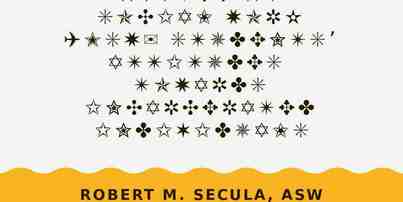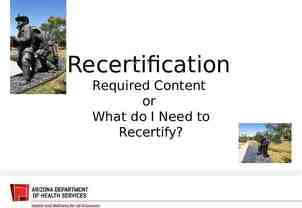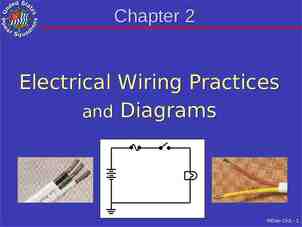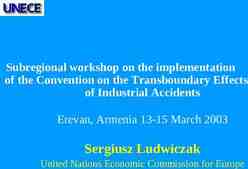Relational Approaches Skills Building Programme How to be attuned
17 Slides965.63 KB

Relational Approaches Skills Building Programme How to be attuned to support engagement? Supporting practitioners to understand and address barriers to learning Informed Level For Scotland's learners, with Scotland's educators Do luchd-ionnsachaidh na h-Alba, le luchd-foghlaim Alba For Scotland's learners, with Scotland's educators Do luchd-ionnsachaidh na h-Alba, le luchd-foghlaim Alba

How to be attuned to support engagement? For Scotland's learners, with Scotland's educators Do luchd-ionnsachaidh na h-Alba, le luchd-foghlaim Alba

What do children and young people say? Behaviour in Scottish Schools Research (2016) Pupils highlighted the following aspects of teachers’ manner and demeanour as important : ‘the teacher being happy’ ‘the teacher smiling when you come in to class’ ‘when the teacher is enthusiastic’ using ‘humour’ ‘being calm’ ‘not shouting’. ‘If‘Ifaateacher teacherisiskind, kind,itit travels travelsacross acrossthe theclass class and andputs putseveryone everyoneininaa good goodmood’ mood’ - -Pupil PupilininChildren Childreninin Scotland Scotlandstudy study For Scotland's learners, with Scotland's educators Do luchd-ionnsachaidh na h-Alba, le luchd-foghlaim Alba

Empathy Supportive and healing relationships Attunement Empathy and attunement feed into each other. For Scotland's learners, with Scotland's educators Do luchd-ionnsachaidh na h-Alba, le luchd-foghlaim Alba

What is attunement, and what do we need to know about it? Attunement: describes how we recognise and respond to another persons emotional needs and moods is the process by which we form relationships Dr. Dan Siegel says, "Children need attunement to feel secure and to develop well, and throughout our lives we need attunement to feel close and connected.” When working with children, attunement comes across as: genuinely caring about them truly listening to them and caring about their response noticing when a they are in a mood, or when they’re unusually quiet, or when they’re struggling For Scotland's learners, with Scotland's educators Do luchd-ionnsachaidh na h-Alba, le luchd-foghlaim Alba

Principles of attunement: the what and the why? (Based on Biemens Contact Principles) Positive Relationships What we do to be attuned Deepening Discussion Guiding & Supporting Becoming Attuned Together Receiving Encouraging Being Attentive Helped to manage and learn Open to learning and new ideas with support How it makes the other person feel Engaged in enjoyable and equal interactions You have been listened to - someone is interested in you and what you have to say The other person is interested in what you think an you are encouraged to offer your own ideas Feel recognised and important For Scotland's learners, with Scotland's educators Do luchd-ionnsachaidh na h-Alba, le luchd-foghlaim Alba

Attunement principles (first 5) Schematic produced by: For Scotland's learners, with Scotland's educators Do luchd-ionnsachaidh na h-Alba, le luchd-foghlaim Alba

What do we mean by being attentive? Turning towards someone Looking at someone Making eye contact Using friendly intonations Using friendly facial expressions Using friendly postures https://youtu.be/7TvoblpMv4I For Scotland's learners, with Scotland's educators Do luchd-ionnsachaidh na h-Alba, le luchd-foghlaim Alba

The importance of non-verbal communication Square (or slightly angled) Open Lean forward Eye contact (appropriate) Relaxed Also consider personal space, sitting down if appropriate, and using non-threatening gestures For Scotland's learners, with Scotland's educators Do luchd-ionnsachaidh na h-Alba, le luchd-foghlaim Alba

What do we mean by encouraging? Waiting Listening actively Showing emotional warmth through intonation Naming positively what you see, think or feel Using friendly and/or playful intonation Saying what they are doing Looking for initiatives For Scotland's learners, with Scotland's educators Do luchd-ionnsachaidh na h-Alba, le luchd-foghlaim Alba

What do we mean by receiving? Showing you have heard, noticed the other’s initiative Receiving with body language, matching or mirroring Being friendly and/or playful as appropriate Returning eye contact, smiling, nodding in response Receiving what the other is saying or doing in words Repeating/using the other’s words or phrases Wondering aloud https://youtu.be/e-dOGlhP6-0 For Scotland's learners, with Scotland's educators Do luchd-ionnsachaidh na h-Alba, le luchd-foghlaim Alba

What do we mean by being attuned together? To and fro - receiving and then responding - contributing equally Checking the other is understanding you Waiting attentively for your turn Having fun Giving a second and further turn on the same topic Giving and taking short turns Cooperating – helping each other For Scotland's learners, with Scotland's educators Do luchd-ionnsachaidh na h-Alba, le luchd-foghlaim Alba

What do we mean by guiding and supporting? Scaffolding (for example, engage, simplify, problem solve, model enthusiasm) Extending, building on the others response Judging the amount of support required and adjusting Giving information when needed Providing help when needed Offering choices that the other can understand https://youtu.be/nGYyEuyEaYc Making suggestions that the other can follow For Scotland's learners, with Scotland's educators Do luchd-ionnsachaidh na h-Alba, le luchd-foghlaim Alba

What do we mean by deepening discussion (sixth principle) Asking activating questions Receiving their opinion Giving your opinion on what they have said Responding with own opinion and question Naming difference in opinion Checking for reception of your opinion For Scotland's learners, with Scotland's educators Do luchd-ionnsachaidh na h-Alba, le luchd-foghlaim Alba

How can I use attunement to support engagement? Reflection Activity (individually or as a group): Deepening Discussion Guiding & Supporting How do I know when: Someone gets me? Someone cares about me? Someone thinks about me? How does it make me feel? How could I develop attuned practice in my setting particularly for children and young people who have experienced adversity and trauma? Becoming Attuned Together Receiving Encouraging Being Attentive For Scotland's learners, with Scotland's educators Do luchd-ionnsachaidh na h-Alba, le luchd-foghlaim Alba

Further reading – Attunement Information Note For Scotland's learners, with Scotland's educators Do luchd-ionnsachaidh na h-Alba, le luchd-foghlaim Alba

Education Scotland Denholm House Almondvale Business Park Almondvale Way Livingston EH54 6GA T 44 (0)131 244 5000 E [email protected] For Scotland's learners, with Scotland's educators For Scotland's learners, with Scotland's educators Do luchd-ionnsachaidh na h-Alba, le luchd-foghlaim Alba






